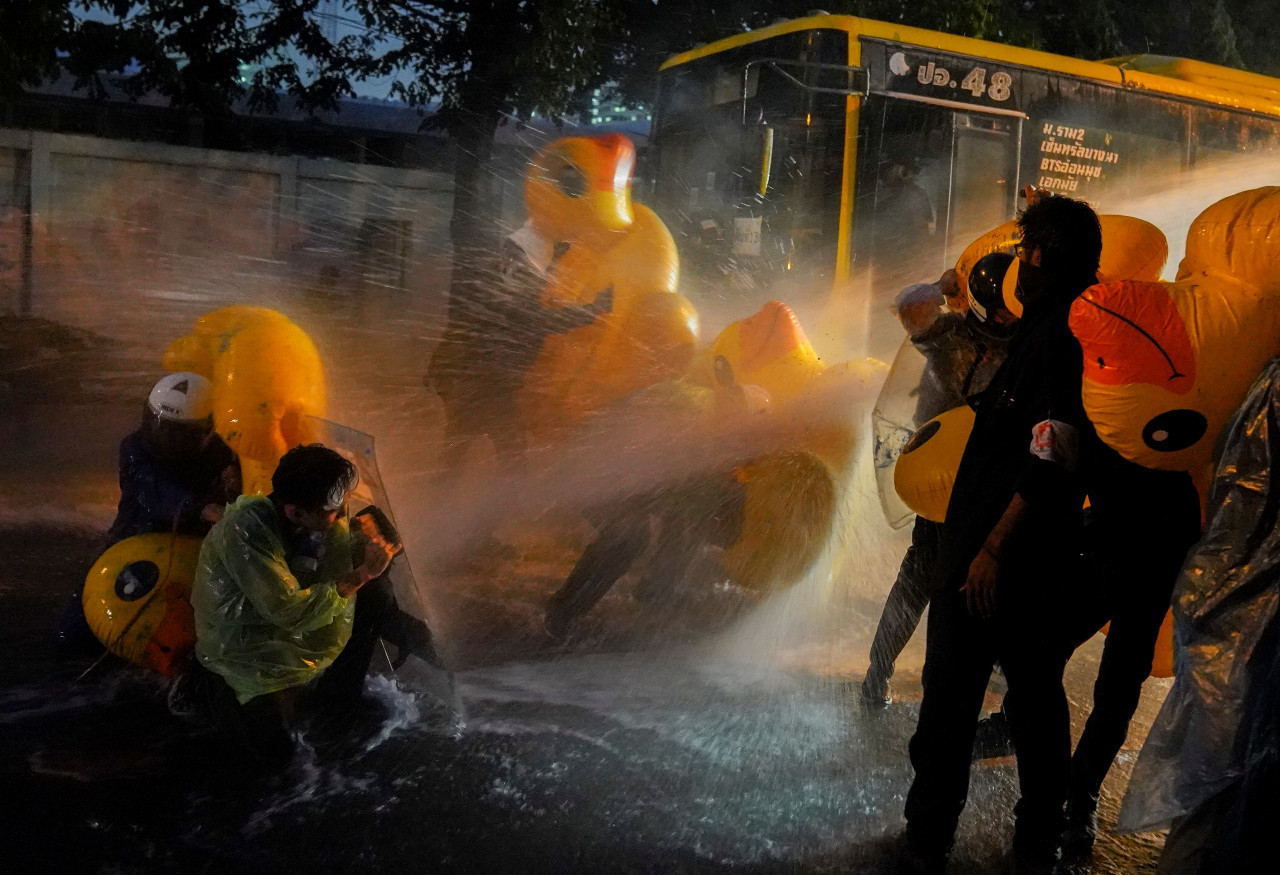Popular Reads
Top Results
Can't find what you're looking for?
View all search resultsPopular Reads
Top Results
Can't find what you're looking for?
View all search results[INSIGHT] Women and youth targets of COVID-19 authoritarianism in SE Asia
Women and youth have become targets as Southeast Asian governments exploit COVID-19 induced state of emergency and temporary laws to prosecute them for their political activities.
Change text size
Gift Premium Articles
to Anyone
Women and youth have become targets as Southeast Asian governments exploit COVID-19 induced state of emergency and temporary laws to prosecute them for their political activities.
This emerging phenomenon is examined in Asia Centre’s second baseline study “COVID-19 and Democracy in Southeast Asia: Building Resilience, Fighting Authoritarianism”, released to mark the United Nations International Human Rights Day, Dec. 10.
The 54-page report, compiled from July to November 2020, examines the state of democracy and human rights in the region between Jan. 1 and Nov. 30. It encompasses a review of over 200 reports, articles and case studies, examined by the key words and data presented.
COVID-19 has not only accelerated democracy’s regression in the region, but the pandemic has also made women and young activists victims of human rights violations. This is on account of the increasing participation of women and youth in anti-government demonstrations which have been underway in Indonesia, Thailand, the Philippines and Malaysia.
Protests against governments, civil disobedience of COVID-19 laws and policies, in Southeast Asia continue to intensify despite the criminal repercussions placed on peaceful protests. Often, women are at the forefront of these demonstrations which are marking a generational change.
In Indonesia, despite requests from labor unions to halt the passing of the largely contested labor bill, the government relaxed multiple labor and environmental laws to pass the controversial omnibus job creation law. Protests, underway since February 2020, have led to the arrests of nearly 6,000 individuals, thousands of which are university students from 26 universities. Videlya Esmerella, one of many, was arrested in October for tweeting “false information” about the omnibus bill, but was later released for lack of substantial evidence.
In Thailand, Benjamaporn (Ploy) Nivas, a 15-year-old protestor, is among the increasingly arrested youth (14-25 years) for their civic participation, which has drawn concern from civil society for the future of human rights in the country. Public assembly offenses and/or sedition charges await the nearly 200 arrested individuals, of which four are minors below the age of 18.
In the Philippines, brewing disaffection of the government’s COVID-19 response, in combination with the lackluster disaster management of various typhoons, have spilled over to academic strikes led by youth. The response from academic authorities - threatening to fail students, continues to have a counterproductive effect than expected.
Despite pressure from authorities and amidst facing criminal charges, outspoken government critics such as Rappler CEO Maria Ressa, continue their plight to speak up against the government.
In Malaysia, following the government collapse of February 2020 and subsequent introduction of the “backdoor” government, youth participation in political demonstrations have gained traction, further encouraged by the success of the Malaysian United Democratic Alliance youth-led political party.
Despite the Universities and University Colleges Act (UUCA) which prevents students from partaking in political activities, disdain towards political elites have yet to substantially deter the students.
Defiance against authority is a common theme gaining traction in Indonesia, Thailand, the Philippines and Malaysia, which has crossed national borders to become a regional movement, indicating a generational and cross-border alliance taking place.
Youth led protests in Southeast Asia have also resulted in linkages with similar movements in Hong Kong and Taiwan, enlarging the youth democratic footprint in the region. Youth, in particular women, are becoming the new faces of a social media propelled movement - which comes at a human rights cost.
Hence, Asia Centre’s report notes the importance of re-strengthening civil society in Southeast Asia, which now, more than ever, requires support to protect politically active women and youth.
The United Nations, governments and donors are thereby reminded of the role they play in empowering civil society, which in turn can speak up and advocate for preventing the unjust prosecution of women and youth.
Without civil society highlighting and speaking up on this issue, women and young people risk becoming the new casualties of authoritarian governments in Southeast Asia.
------------
James Gomez is Regional Director of Asia Centre, a Bangkok-based not-for-profit organization that aims to create human rights impact in the region. Nukila Evanty is advisory board member at Asia Centre and executive director of Women Working Group.









